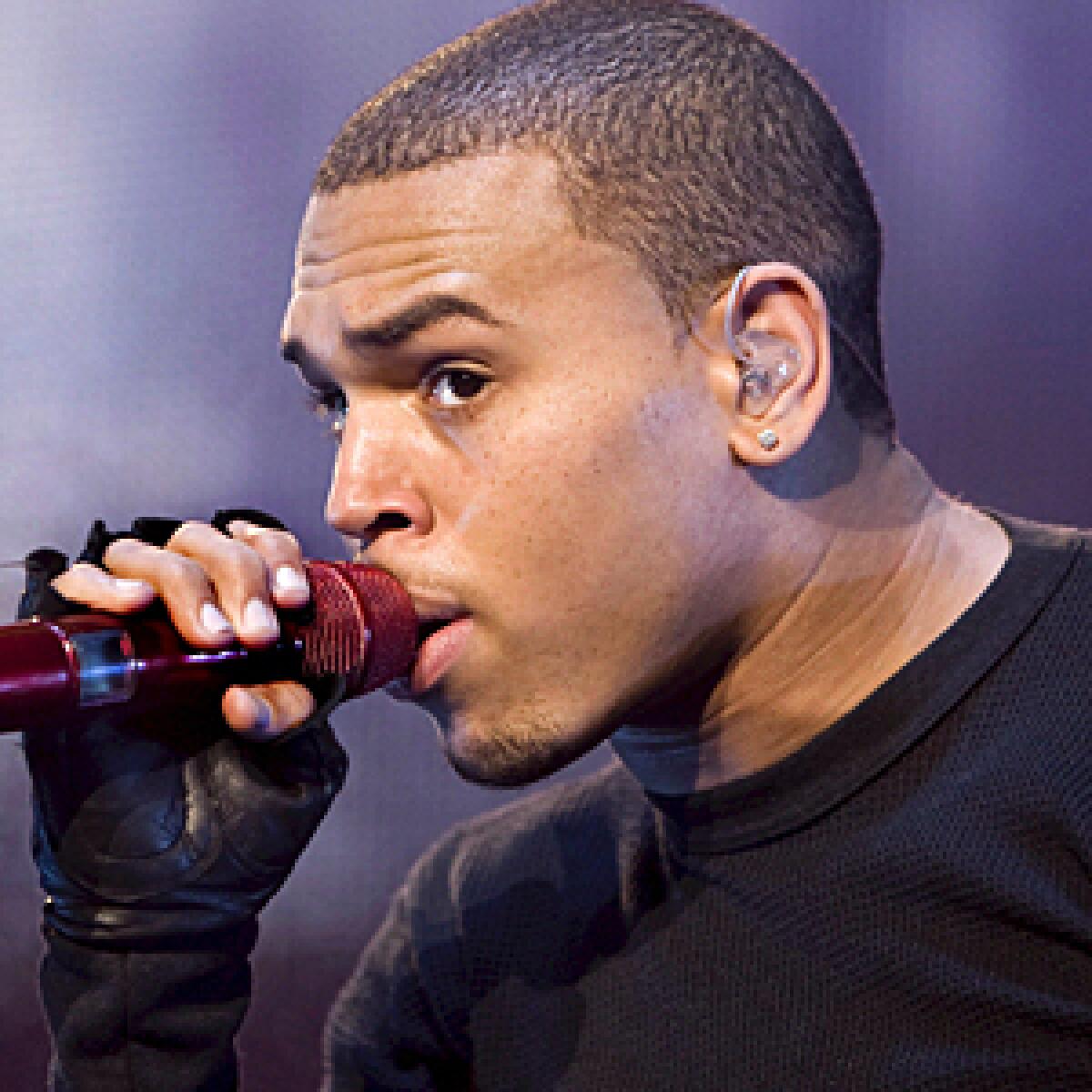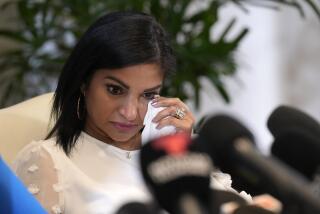Chris Brown, Rihanna and the image problem

Until someone dialed 911 on Feb. 8 to report a disturbance in Hancock Park, the pop star Rihanna and her R&B-singer boyfriend, Chris Brown, enjoyed relatively wholesome reputations. Attractive and talented, the couple were known as sexy but not oversexed, fun-loving but not reckless. The two seemed unlikely to be involved in anything more shocking than an all-night dance party.
That image opened the door to a host of commercial endorsements. Brown appeared in ads for Doublemint gum and milk while Rihanna hawked more than a dozen products, including Nike sportswear, Totes umbrellas, Venus razors and Fuze beverages.
But then came the ugly scene that left Rihanna bleeding and bruised, Brown in police custody and the picture of them as hip, uncomplicated lovers in tatters.
“Good boy, good girl. It’s something we’d never expect,” said Emmanuel “E-Man” Coquia, assistant program director at Power 106, a radio station that plays both entertainers’ hits. “The music that they sing -- they don’t talk about this stuff, they talk about other things, about having fun.”
The consequences to Brown, 19, and Rihanna, 20, are extensive. She must deal with physical and emotional wounds; he must deal with a criminal case and potential time behind bars. A week after the incident, Brown released his first public statement, which emphasized that blog and media reports that claimed to have received any previous statement from him about the incident were false.
“Words cannot begin to express how sorry and saddened I am over what transpired,” wrote Brown. “I am seeking the counseling of my pastor, my mother and other loved ones and I am committed, with God’s help, to emerging a better person.”
But beyond the courtroom and the hospital, both performers have millions of dollars at stake in terms of possible damage to product endorsement predicated on reputations that no longer exist, branding experts say.
“Whether or not it is true is sort of beside the point,” said Matt Delzell, who has worked with Rihanna as a group account director at Davie Brown Talent, a Dallas company that advises companies on celebrity endorsers.
“If people perceive that these two very successful, young, wealthy individuals turn out to be irresponsible . . . then it’s absolutely going to hurt them,” said Delzell.
Brown has already experienced the fallout. A day after his arrest, the makers of Doublemint gum shelved ads featuring him singing a new jingle. The group behind the milk ad -- which showed Brown dancing while wearing a milk mustache -- issued a statement saying they were taking the allegations against Brown “very seriously” and noting that the campaign was already scheduled to end last week. A spokeswoman for Rihanna’s highest-profile endorsement, CoverGirl cosmetics, said ads featuring Rihanna are still running nationally but declined to discuss whether her status as an alleged victim of domestic violence would affect the future of the campaign.
“As a matter of policy, we do not discuss advertising plans,” the spokeswoman said.
The careers of both singers are intricately bound to their commercial appearances. Brown kicked off his work for Doublemint with a concert in a Times Square theater, and the slick television ad pulled last week looked more like a music video with Brown dancing to his hit “Forever.” Rihanna’s management team began courting advertisers before she ever had a hit. Secret, the deodorant maker, sponsored a tour of shopping malls that introduced her to many fans. Even after she had several chart-toppers, her music continued to be interwoven with commercial endeavors. Her handlers pitched her hit “Umbrella” to Totes and the song became the soundtrack for commercials in which she starred. The night before she suffered her injuries, she appeared at an event for Verizon, which was allowing BlackBerry users to download a new version of her song “Rehab.”
“We’ve worked hard to build me and my name up as a brand,” Rihanna told the New York Times last summer.
Marketing experts experienced with celebrity endorsements predicted companies would avoid additional deals with both and would be especially wary of working with Brown.
“I would not want to say that it is a death sentence, but it is certainly going to be very difficult for him to secure future endorsements,” said Ann Green, a senior vice president at Millward Brown, a New York-based marketing research company.
Although Rihanna has not been accused of doing anything wrong, some companies may shun her as well, she said.
“The reason why she has been used as a celebrity endorser is that she represents something very positive and in particular a strong female role model, and when she is associated with a situation like this it can have an impact,” Green said.
Brown’s arrest coupled with the recent controversy over photos of Olympic gold medalist Michael Phelps smoking from a marijuana pipe may have a chilling effect on celebrity endorsements, said Eli Portnoy, chief brand strategist at the Portnoy Group.
“Young entertainer types, regardless of how beautiful and talented, are always very risky because they are less mature,” Portnoy said. The risk is now compounded, he said, because of the difficult economy.
Perhaps underscoring the high stakes, both performers’ camps have been largely silent since the alleged assault.
Brown retained one of the city’s most media-savvy attorneys, but the lawyer, Mark Geragos, has declined to make a public statement on the case. Rihanna has vanished into seclusion, leaving her publicist to issue repeatedly the same nine-word statement: “Rihanna is well. Thank you for concern and support.”
Publicist Howard Bragman, who often works with clients in crisis, said silence was the wisest course. “Once we figure out what happened,” he said, “there will be plenty of time for apologies and catharsis and rebuilding careers.”
More to Read
Inside the business of entertainment
The Wide Shot brings you news, analysis and insights on everything from streaming wars to production — and what it all means for the future.
You may occasionally receive promotional content from the Los Angeles Times.












